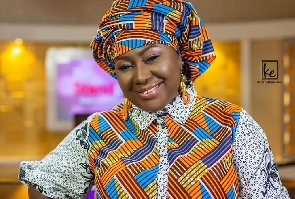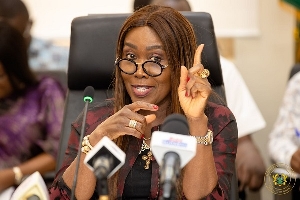- Home - News
- TWI News | TV
- Polls
- Year In Review
- News Archive
- Crime & Punishment
- Politics
- Regional
- Editorial
- Health
- Ghanaians Abroad
- Tabloid
- Africa
- Religion
- Election 2020
- Coronavirus
- News Videos | TV
- Photo Archives
- News Headlines
- Press Release
General News of Friday, 7 September 2012
Source: TCCL Political Desk Report
Mahama Leads Akufo-Addo In 7 Of 10 Regions
With three months to the crucial Election Day, December, 7, a new national poll suggests that newly endorsed NDC presidential candidate John Mahama holds a six-point lead over NPP presidential candidate Nana Akufo-Addo in the race for President of the Republic of Ghana.
In a joint opinion poll commissioned by the Republic Newspaper and UK group Policy & Strategy Associates, Inc. released Thursday, 52 percent of likely Ghanaian voters say they are backing John Mahama, the former MP and previously Vice President of Ghana who was sworn into office as president in the evening of July 24 to serve out the unexpired term of his predecessor president John Atta Mills who died suddenly in office earlier that day, while 46 percent of likely Ghanaian voters support Nana Akufo-Addo, a former MP and Foreign Minister in the Kufour Administration.
There are two other major party candidates that are expected on the ballot across the nation in Ghana’s 2012 election.
They are CPP presidential candidate Dr Abu Sakara Foster and PNC presidential candidate Hassan Ayariga.
When they are factored into the poll, John Mahama's lead decreases by one percentage point, to five points—51 percent to 46 percent for Akufo-Addo, with Dr Abu Sakara Foster, Hassan Ayariga and “other candidates” combining to share the remaining 3 points.
The Republic Newspaper/Policy & Strategy Associates, Inc. poll was conducted Saturday September 1 through Tuesday September 4 with 1,562 adult Ghanaians interviewed across the regions. The surveys' sampling error is plus or minus 3 percentage points.
NDC’s John Mahama also holds a commanding lead in the Republic Newspaper/Policy & Strategy Associates regional electoral map.
The poll suggests that if the election were held today, John Mahama would win the majority share of votes in seven regions: Greater Accra Region—52.5%; Northern Region—65.8%; Volta Region—85.6%; Central Region—51.5%; Upper East Region—57.4%; Upper West Region—62.5% and; Western Region—51.0%.
Nana Akufo-Addo would take the majority share of votes in 2 regions, while the Brong Ahafo Region would still be up for grabs though it appears the ruling NDC party candidate holds a slight edge. Akufo-Addo would win majority of votes in Ashanti Region—69.5% and Eastern Region—57.4%.
Polling data for the Brong Ahafo Region suggests that 47.2% of respondents will vote for the NDC’s John Mahama while 47.0% indicated that they will support NPP’s Nana Akufo-Addo. A sizeable percentage of voters surveyed in the Brong Ahafo region have indicated that they are currently undecided—5%.
The new poll also suggests that a majority of Ghanaians have a favourable view of both leading presidential candidates, with 73 percent giving a thumbs up for John Mahama and 54 percent for Nana Akufo-Addo when the question was asked separately for each candidate to determine the favourability rating of all candidates.
Seventy-one percent of those polled say life will be better for most Ghanaians four years from now if John Mahama is elected, with 53 percent saying life would be better if Akufo-Addo wins, when asked separately about how they expect life to be under the candidates.
So how does this election compare to the last presidential election opinion polls conducted by Policy & Stategy Associates, Inc.?
Four years ago, all two Policy & Strategy Associates, Inc.’s polls published before the 2008 Ghanaian election predicted that John Atta Mills was several points ahead of Nana Akufo-Addo in 7 or 8 regions of Ghana. Atta Mills ended up winning the majority of votes in 7 regions in the first round of Ghana’s election 2008, and subsequently won 8 regions in the second round to become President of Ghana.
In the run-up to the 2012 election, The Republic Newspaper is commissioning a series of independent research in collaboration with Policy & Strategy Associates, Inc. with the objective to promote quality political opinion research to enhance Ghana’s young democracy.
Entertainment









